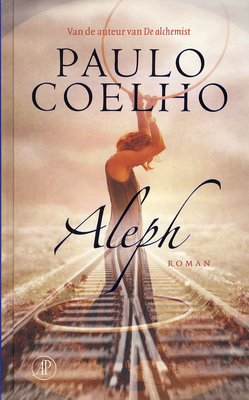What do you think?
Rate this book


288 pages, Hardcover
First published January 1, 2010



“اغفر للدموع التي كتب علي ان أذرفها
اغفر للألم.. ولخيبات الأمل
اغفر للخيانات وللأكاذيب
اغفر للقدح والذم وللمكائد
اغفر للكراهية وللاضطهاد
اغفر للضربات التي اذتني
اغفر للأحلام المحطمة
اغفر للأمال العقيمة
اغفر للعدوانية وللغيرة
اغفر للامبالاة ولللبُغض
اغفر للظلم المنفَّذ باسم العدالة
اغفر للغضب وللوحشية
اغفر للإهمال وللاحتقار
اغفر للعالم ولكل شروره.”


ولكن ياو، المترجم المرافق لباولو كويلو هو اكثر من رحب بوجودها في تلك الرحلة








سأقتدر على الحب اكان متبادلا ام لا
على العطاء حتى وان لم امتلك شيئا
على العمل بسعادة حتى فى أشد الصعاب
على مد يدى للعون حتى وان كنت وحيدة تماماً ومتروكة
على تجفيف دموعى حتى فى وسط انتحابي
على الإيمان وان لم يؤمن بى أحد
GOLDEN RING (LIGHT) EXERCISE
Performed just before going to sleep, while lying on the bed one has to imagine a ring of golden light moving from head to toe and back (with body at centre of ring). Keep repeating, each time increasing the speed of ring and thus fall asleep.
إذا آمنت بأنني سأنتصر ، سيؤمن النصر بي إذاً- مع وجود لمسة جنون لكى تكتمل ، بالإضافة إلى الفكر الصوفى و عباراته المعبرة مثل :
كل من يعرف الله يعجز عن وصفه و كل ما يقدر على وصفه لا يعرفه .
أمِن الممكن الانحراف عن الطريق التي رسمها الله ؟ نعم ، ولكنّه خطأ . أمِن الممكن تجنّب الألم ؟ نعم ، ولكنّك لن تتعلّم شيئاً . أمِن الممكن معرفة شيء لم تختبره قط ؟ نعم ، ولكن لن يكون فعلاً جزءًا منك .
شأننا شأن وجود خلية يمكن للخلية أن تحدث سرطاناً مدمراً و يمكن لها أيضاً أن تطلق عناصر كيميائية تبعث على السعادة و الهناء .

عازم سفری شدم هزار فرسخی، بی هیچ ره توشه. می گفتند انکه بر این کمند عصا تکیه زده، در یکی مهتاب نیمه شبان به عدم پیوسته است. چون کلبه ی ویرانم را برکناره رودخانه ترک کردم، آوای باد سوز غریبی داشت. باشو سال 1684
از آن هشت دختر محکوم به اعدام، یکی شان واقعا دوستم داشت، دختری که اسمش را هرگز نفهمیدم
و روح خداوند از شائول دور شد، و روح بد از جانب خداوند او را مضطرب مي ساخت و سربازان شائول وي را گفتند: اينک روح بد از جانب خدا تو را مضطرب مي سازد. پس امر فرمايید تا كسي را كه بر بربط نواختن ماهر باشد بجويند، و چون روح بد از جانب خدا بر تو بيايد به دست خود بنوازد، و تو را نيكو خواهد شد. شائول به سربازان خود گفت: الان كسي را كه به نواختن ماهر باشد براي من پيدا كرده، نزد من بياوريد. يكي از خادمانش در جواب وي گفت: اينک پسر يسای بيت لحمي را ديدم كه به نواختن ماهر و صاحب شجاعت و مرد جنگ آزموده فصيح زبان و شخص نيكو صورت است و خداوند با وي مي باشد و داود نزد شائول آمده، به حضور وي ايستاد و او وي را بسيار دوست داشت و سلاحدار او شد و واقع مي شد هنگامي كه روح بد از جانب خدا بر شائول مي آمد كه داود بربط گرفته، به دست خود مي نواخت، و شائول را راحت و صحت حاصل مي شد، آرامی می گرفت و روح بد از او مي رفت